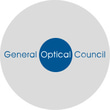- OT
- Professional support
- Optical organisations
- Candour and reflective practice: the pathway to improving patient care
Candour and reflective practice: the pathway to improving patient care
GOC head of standards and CET, Marcus Dye, writes that a ‘safe space’ for practitioners to reflect candidly is vital in order to learn and develop

04 September 2019
As the regulator for optometrists and dispensing opticians, the General Optical Council (GOC) wants to support practitioners in improving the care they provide to patients. A key part of good patient care is the requirement to be open, honest and transparent with patients when things go wrong – the professional duty of candour. This duty was agreed by all healthcare regulators in response to recommendations arising from the Francis inquiry into poor patient care at Mid-Staffordshire NHS Foundation Trust and was included in the Standards of Practice for Optometrists and Dispensing Opticians in 2016 (Standard 19).
The link to reflective practice
As well as being candid with patients when something goes wrong, it is also important to reflect on what has happened and consider how to prevent it happening again. Such events are a great learning opportunity and can be used as part of your CET.Reflection is the thought process where individuals consider their experiences to gain insights about their whole practice. It supports individuals to continually improve the way they work and the quality of care they give.
Taking part in a peer review as part of your CET is a good way to reflect and learn with others
Will the GOC use my reflection against me?
Understandably, there is nervousness about reflecting when things have gone wrong following the case of Dr Hadiza Bawa-Garba. The junior doctor was struck off by the General Medical Council and prosecuted for gross negligence manslaughter, where it was alleged that reflective material formed part of the case against her. We want to reassure practitioners that the GOC will not request reflective material for the purposes of investigating a fitness to practise (FTP) complaint, even though we have the power to do so in theory.Alistair Bridge, the GOC’s director of strategy, has stated: “Although we currently have this power we have never used it and will not do so; we consider it important that registrants are able to reflect on their practice for the purpose of learning without fear of their reflections being used against them at a FTP hearing.” This means that reflective material is a ‘safe space’ and you should be as candid in your reflections as possible to ensure you learn as much as you can.
We made a further commitment in signing up to the statement on benefits of becoming a reflective practitioner, which was agreed by all UK healthcare regulators in June 2019. This states that: “Engaging in reflection benefits healthcare professionals and the multi-professional teams in which they work, or with whom they might discuss aspects of their practice. We will not ask those on our registers to provide their personal written reflections in order to investigate a concern about them. Registrants can choose to offer them as evidence of insight into their practice.”
There is nervousness about reflecting when things have gone wrong following the case of Dr Hadiza Bawa-Garba
How should I reflect?
There is more than one way to reflect and different people have different preferences. Depending on the environment you work in, you might have team meetings to review cases or incidents. You might also reflect as part of auditing your clinical records or reviewing patient feedback surveys.
Taking part in a peer review as part of your CET is a good way to reflect and learn with others, as is talking about things with a mentor. We also provide tools for undertaking reflection in the personal development plan on the MyCET website. These include a scope of practice review and reflection templates to use after you complete CET. Your employer or professional association are also good sources of guidance on how to reflect.
We encourage all registrants to use reflection to improve the patient experience. Further information can be found on our website or email us on [email protected]
Read the GOC’s statement about reflective learning in healthcare
Image credit: Getty/Fanatic Studio/Gary Waters/Science Photo Library


Comments (0)
You must be logged in to join the discussion. Log in